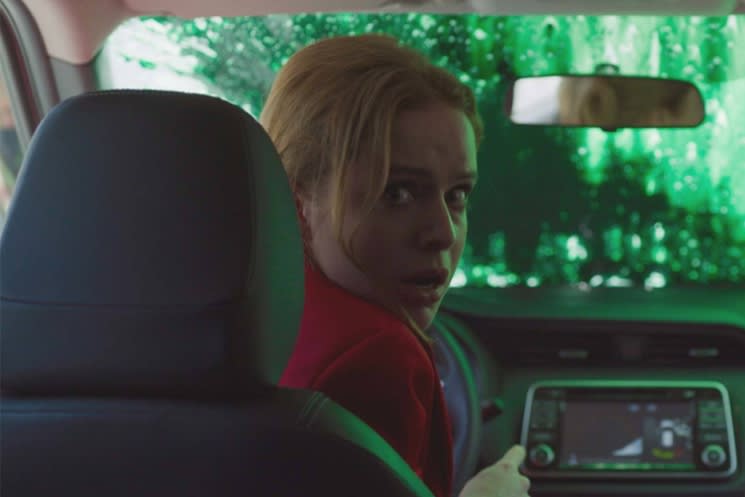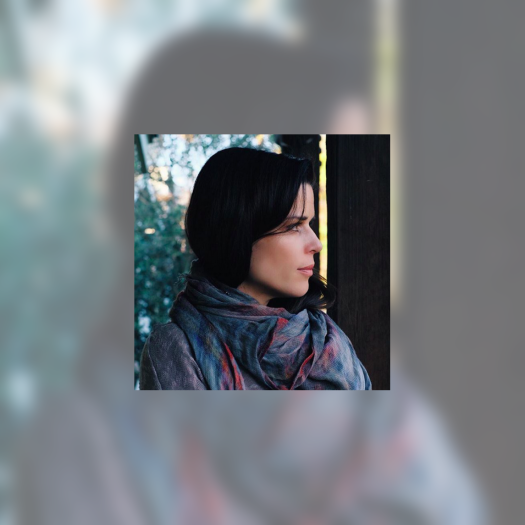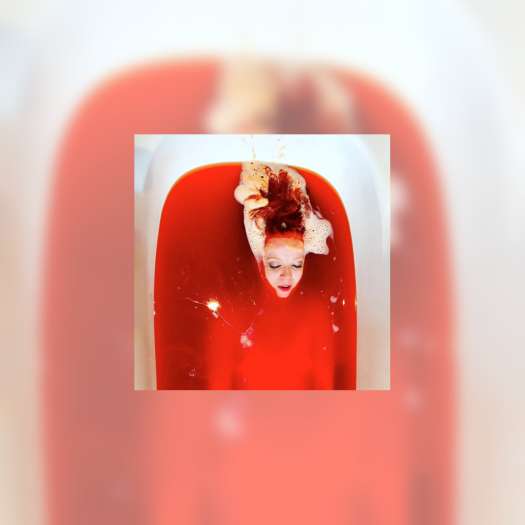The utility of rioting has been an important debate of late. For some, destruction of property seems to be a step too far; others recognize that loss as trivial compared to society criminalizing people due to their race or class. With questions like this, New Order, the latest from Mexican director Michel Franco, is timely, except that the movie is here first and foremost as a catalogue of devastations, sent out in every direction
Set in a version of Mexico of today, one of the first images in the movie is a lengthy tracking shot of dead bodies, some touched with green paint. The colour is significant, as the paint is a tool of a protest movement building in intensity.
Why green paint? What are they protesting? That much isn't outlined, but the first substantial setting says class has to be part of it. We meet Marianne (Naian González Norvind) on her wedding day. It's an upper crust wedding, a cross-section of public figures, the business people who bribe them, and their wealthy children.
The house is a microcosm of class struggle, the idle rich, and those who serve them. Drivers linger outside, the help toils, and anyone not anointed setting foot in the public space is tolerated fleetingly. One person testing the tolerance is a former worker for Marianne's family, who approaches them asking money for an urgent medical procedure. The family, who can hardly find the time to acknowledge the movement outside their walls, treat the man like an annoyance.
Only Marianne has the empathy to try to look after the man, and takes Cristian (Fernando Cuautle), who works for her family, out with her to deliver the money. Once she's gone, though, events turn ugly in the streets, where protestors, police and the military clash. And back at home, protestors storm the house, looking for retribution.
From here on, the events unfolding don't allow for any further character development, nor is there a greater context given to this situation. The viewer is here to understand, things get worse. The protestors are here to loot and maim. The police and military are laying on blanket brutality. These stack on top of each other without building to anything.
Franco and his collaborators march the plot along at a brisk pace, forgoing intertitles or exposition even as the timeline speeds up in this brief movie. The time they do have doesn't give anything more to the actors — Cuautle and the other characters of lower class are beaten down to begin with, bringing a blank weariness to their experience. Gonzáles Norvind gives Marianne a sense of hope that's shortly tarnished. Through them, Franco's imagining the ways in which democracy slips away; likely, there are some among us who don't feel they need to imagine how bad things can get.
New Order doesn't illustrate or speak in ideologies, instead imagining ways in which current dynamics could be pushed to extremes. It's tough, though, not to come away with the notion that social justice movements and authoritarianism meet at an extreme and become flat and indistinguishable — a nihilistic view the film can't convert me to.
(Elevation Pictures)Set in a version of Mexico of today, one of the first images in the movie is a lengthy tracking shot of dead bodies, some touched with green paint. The colour is significant, as the paint is a tool of a protest movement building in intensity.
Why green paint? What are they protesting? That much isn't outlined, but the first substantial setting says class has to be part of it. We meet Marianne (Naian González Norvind) on her wedding day. It's an upper crust wedding, a cross-section of public figures, the business people who bribe them, and their wealthy children.
The house is a microcosm of class struggle, the idle rich, and those who serve them. Drivers linger outside, the help toils, and anyone not anointed setting foot in the public space is tolerated fleetingly. One person testing the tolerance is a former worker for Marianne's family, who approaches them asking money for an urgent medical procedure. The family, who can hardly find the time to acknowledge the movement outside their walls, treat the man like an annoyance.
Only Marianne has the empathy to try to look after the man, and takes Cristian (Fernando Cuautle), who works for her family, out with her to deliver the money. Once she's gone, though, events turn ugly in the streets, where protestors, police and the military clash. And back at home, protestors storm the house, looking for retribution.
From here on, the events unfolding don't allow for any further character development, nor is there a greater context given to this situation. The viewer is here to understand, things get worse. The protestors are here to loot and maim. The police and military are laying on blanket brutality. These stack on top of each other without building to anything.
Franco and his collaborators march the plot along at a brisk pace, forgoing intertitles or exposition even as the timeline speeds up in this brief movie. The time they do have doesn't give anything more to the actors — Cuautle and the other characters of lower class are beaten down to begin with, bringing a blank weariness to their experience. Gonzáles Norvind gives Marianne a sense of hope that's shortly tarnished. Through them, Franco's imagining the ways in which democracy slips away; likely, there are some among us who don't feel they need to imagine how bad things can get.
New Order doesn't illustrate or speak in ideologies, instead imagining ways in which current dynamics could be pushed to extremes. It's tough, though, not to come away with the notion that social justice movements and authoritarianism meet at an extreme and become flat and indistinguishable — a nihilistic view the film can't convert me to.




